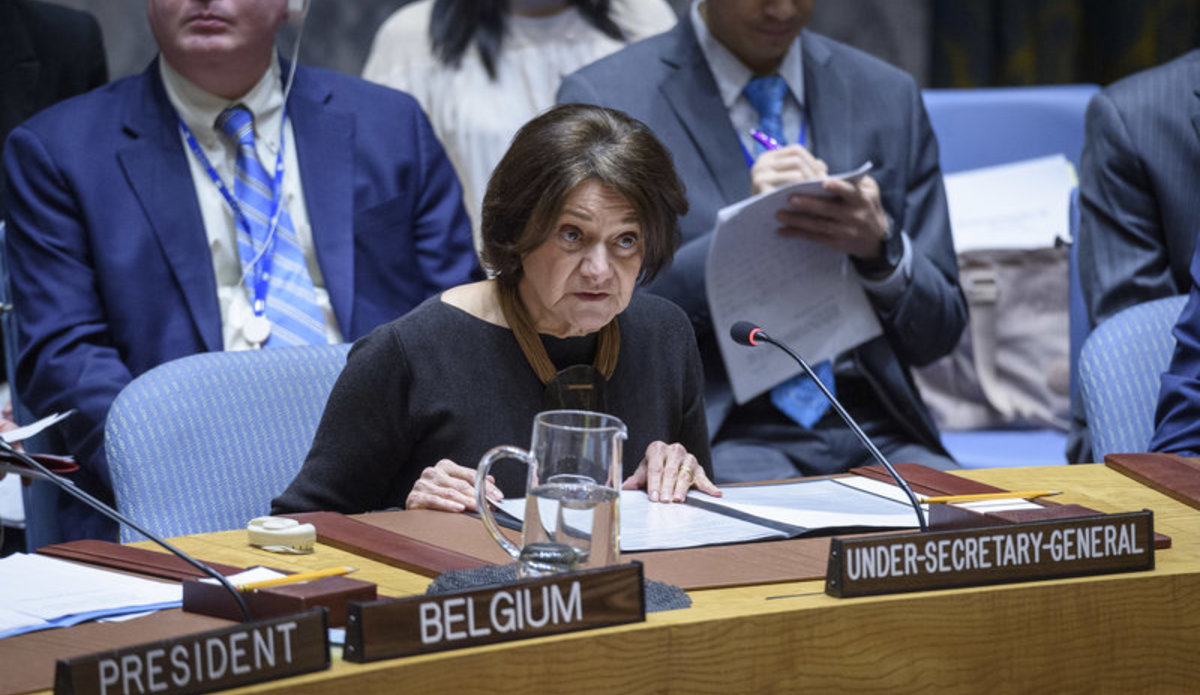Thank you, Mr. President,
The security situation has continued to gravely deteriorate in and around Idlib. Let me recall some of the key events.
In the last nine days, Syrian Government forces, with support from the Russian air force, have continued to advance, taking a large swath of villages in southern Idlib. Air strikes also continue in both frontline areas and population centers far removed from the fighting. During the same period, non-state armed groups launched a counterattack in eastern Idlib, retaking the city of Saraqib, which they lost to Syrian Government forces in recent weeks. This action cut the Syrian Government’s control of the strategic M5 highway. Turkish forces reportedly played a supporting role in this operation.
Delegations from the Russian Federation and Turkey resumed their talks, from 26 February, in Ankara. These discussions have continued until today, along with presidential contacts by phone.
On 27 February, there were strikes on Turkish troops inside Syria. The Turkish Minister of Defense noted that 33 Turkish soldiers were killed and 32 wounded by strikes that Turkey has attributed to the Syrian Government. Russian Ministry of Defense officials confirmed that an unspecified number of Turkish soldiers, who they said were co-located with non-state armed groups, had been hit by Syrian Government shelling. Turkish Defense Ministry officials have noted that after the strikes on Turkish soldiers, Turkey targeted Syrian Government positions with aircraft, weaponized drones and artillery.
Mr. President,
We strongly urge Russia and Turkey to build upon their previous agreements to secure a fresh ceasefire for north-west Syria.
These latest developments are unfolding in the context of a broader military escalation that was already devastating for civilians in the north-west.
For months now, bombing and shelling by the Government of Syria, supported by its allies, has continued in the so-called de-escalation zone of Idlib. Strikes have been launched on populated areas from both air and ground, seemingly without regard for civilians. Nearly a million people have been displaced since early December, many multiple times, including more than 560,000 children. They are fleeing north, away from the intensifying aerial and ground bombardment and into ever-shrinking areas where they still hope to find relative safety.
The Office of the High Commissioner for Human Rights has verified at least 1,750 civilians have been killed since last April. The actual number is probably higher. 351 civilians have been killed in the last two months alone. While the majority of these civilian deaths—94%—has occurred in opposition-held areas exposed to bombardment by pro-government forces, 6% occurred in government-held areas. This serves as a reminder that Hayat Tahrir al-Sham, which is designated by this Council as a terrorist organization, and other non-state armed groups have also struck populated areas indiscriminately. Civilians are killed in IDP camps, schools and hospitals. This is happening in plain sight, night and day, day in and day out. Hospitals destroyed. Schools destroyed. Peoples’ lives destroyed. And it is happening under our watch.
Mr. President,
We continue to come before you with an ever-growing record of destruction and atrocity. The Secretary-General has consistently expressed alarm at the dangerous escalation in north-west Syria.
The UN has countless times reminded all parties that any attacks on civilians and civilian infrastructure are simply unacceptable. We have repeatedly called for a ceasefire. We have reaffirmed to the parties that all military operations must respect the rules of international humanitarian law. If such horrific acts and tactics persist despite global outrage, is it largely because their authors do not fear accountability and justice?
Civilians in Idlib are living under daily threat and terror, seeking refuge from airstrikes and volleys of shells and mortar rounds. They are NOT asking for a pause in the fighting. They are asking for an end to the killing. We must all assume our responsibility to do all we can to stop this violence.
Thank You.

